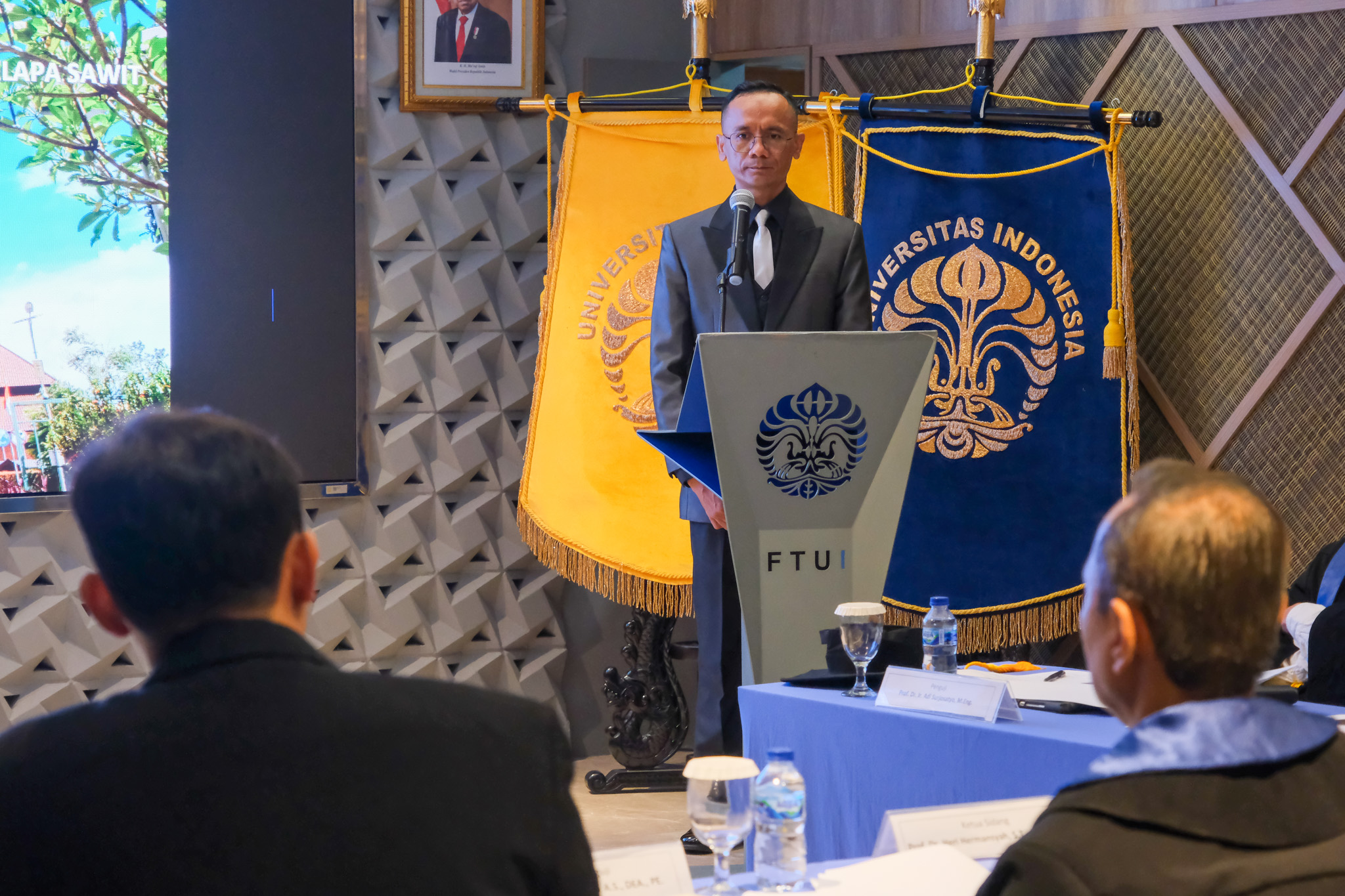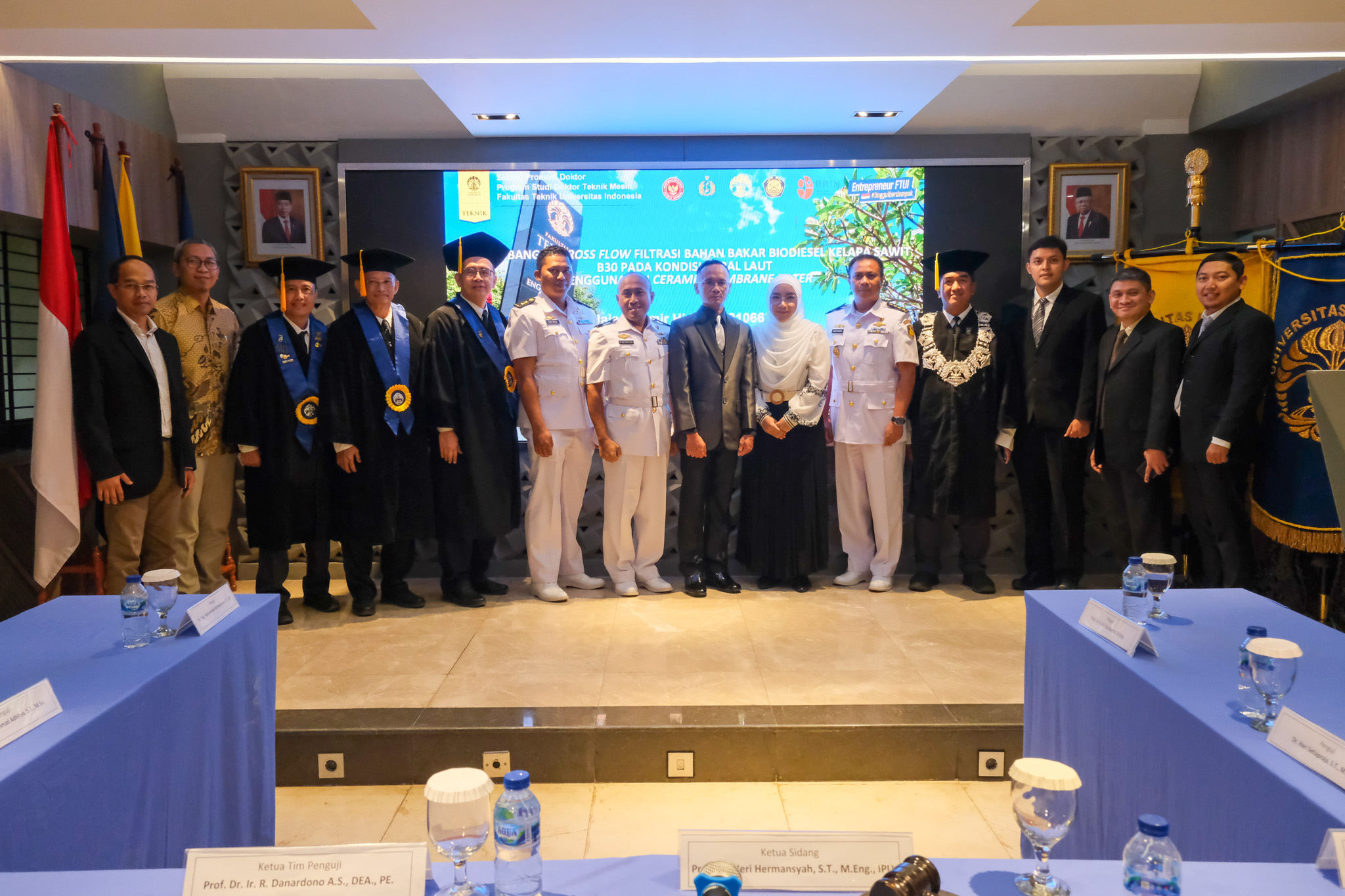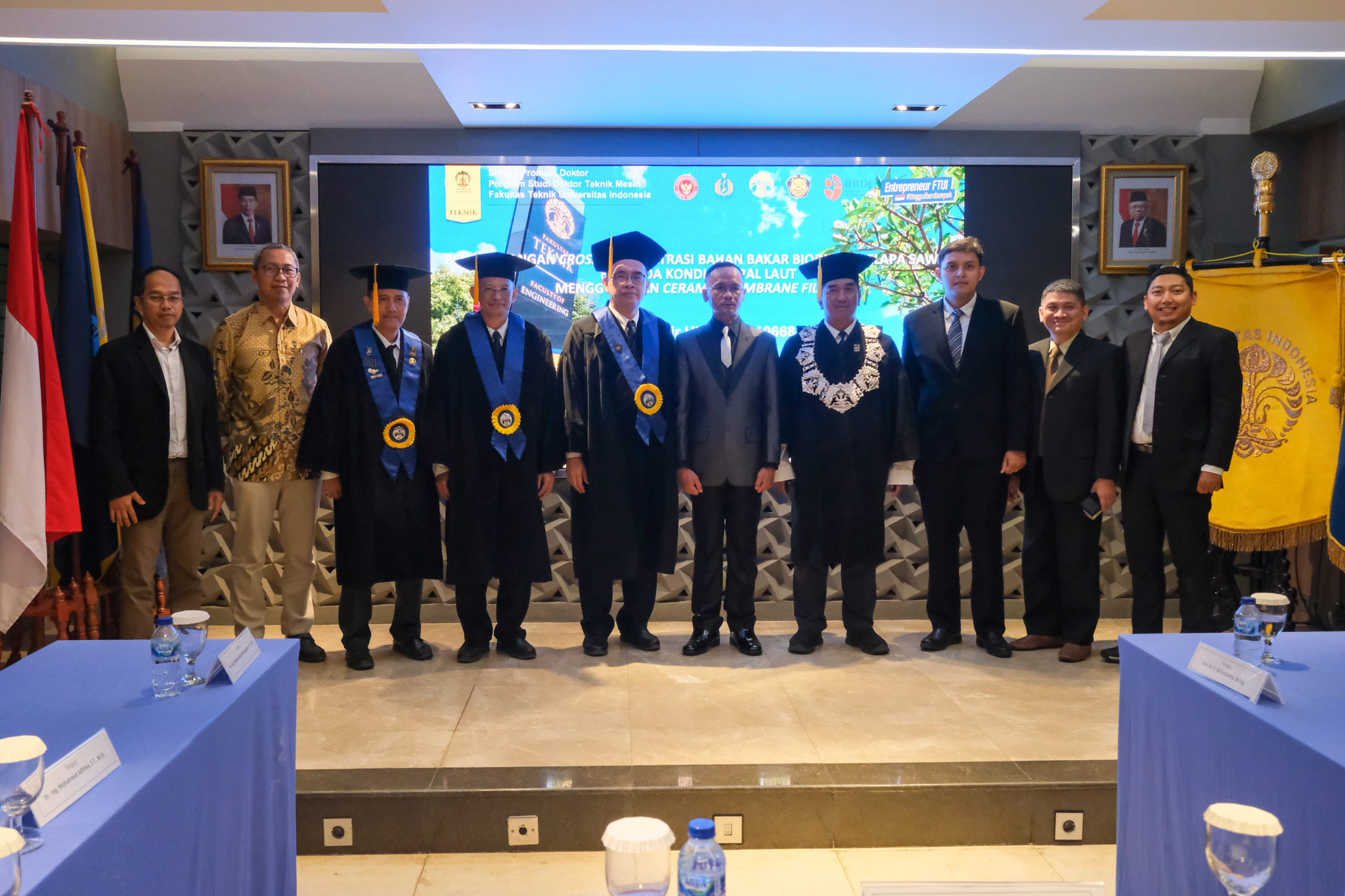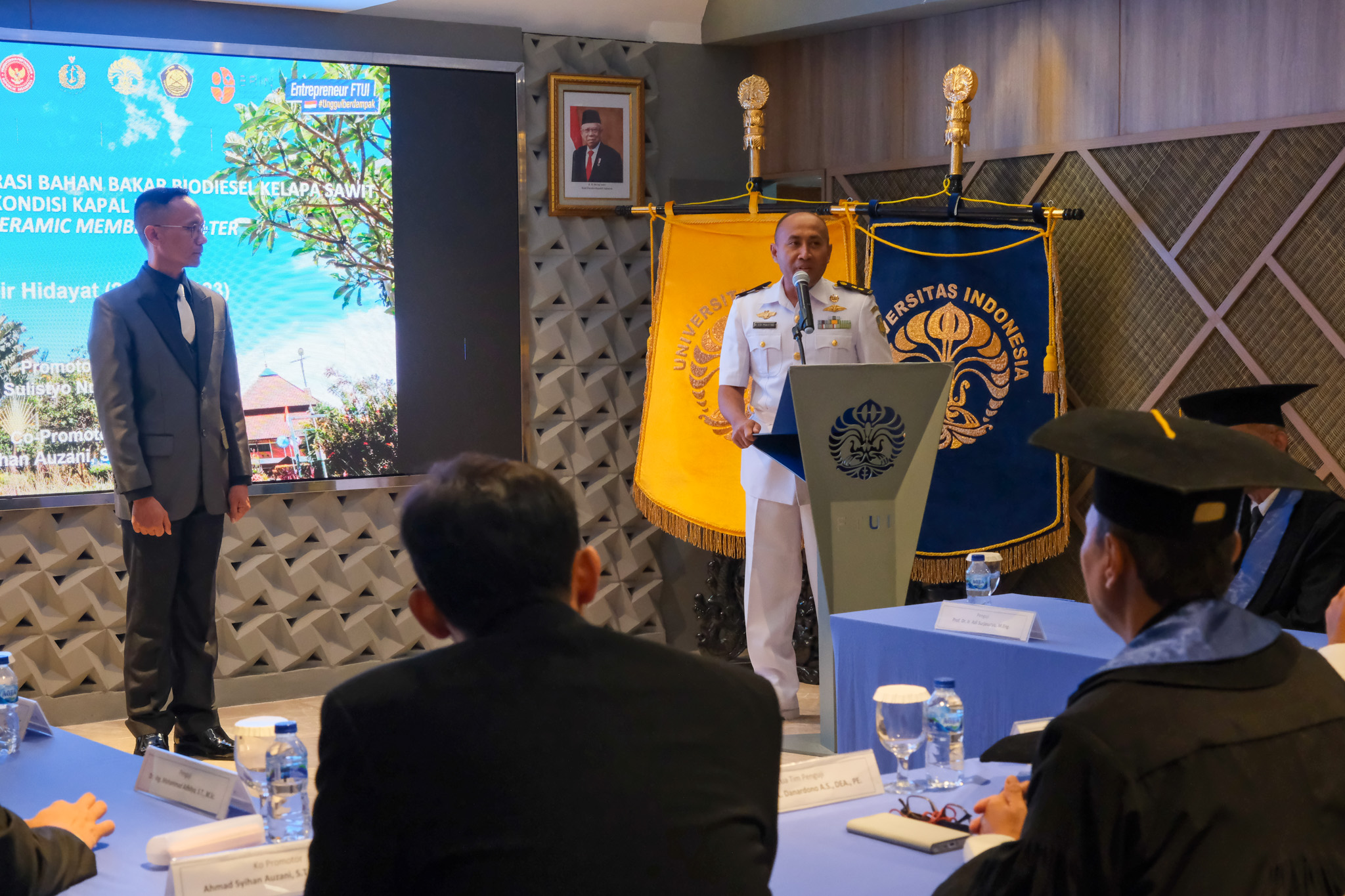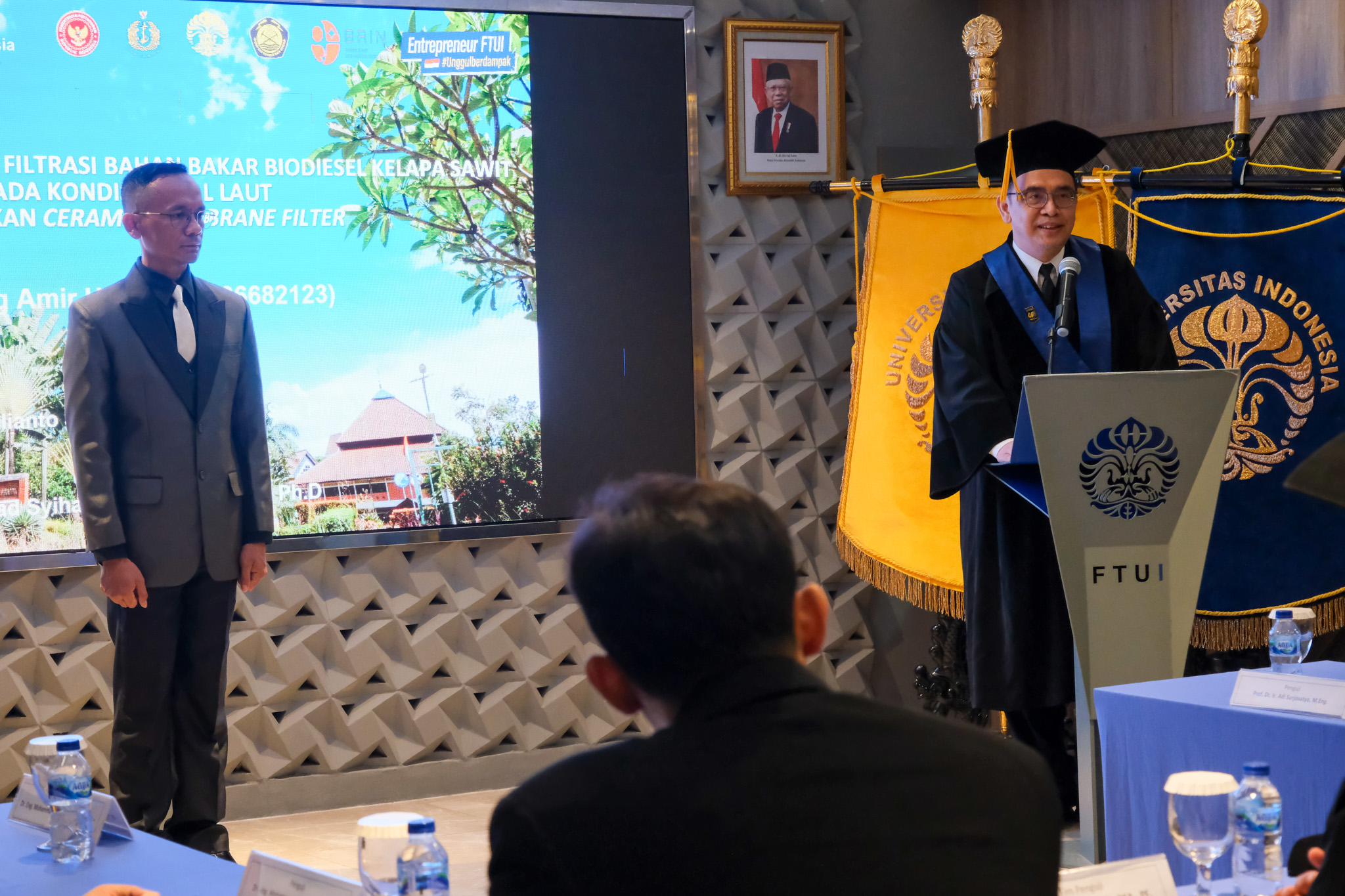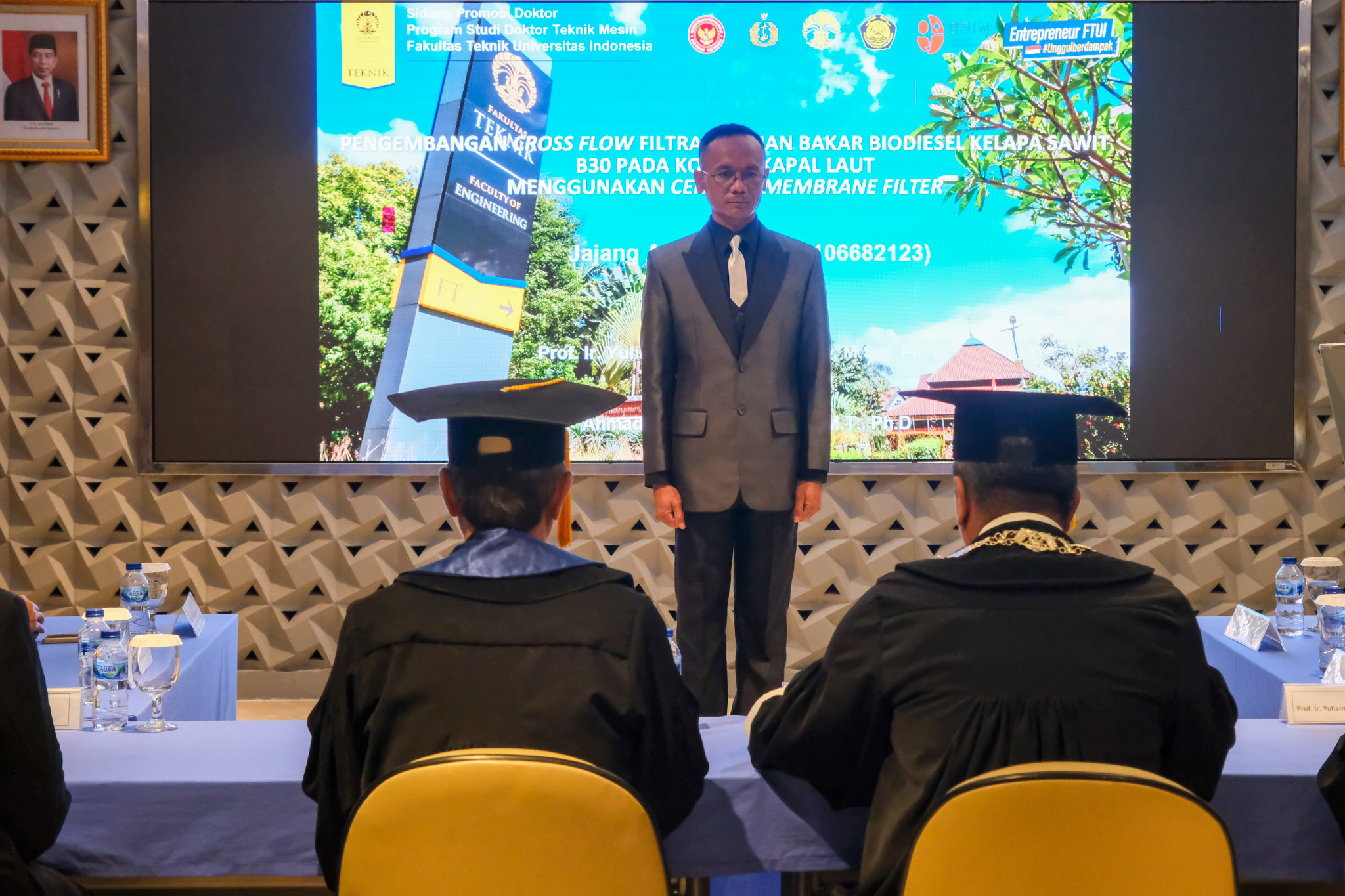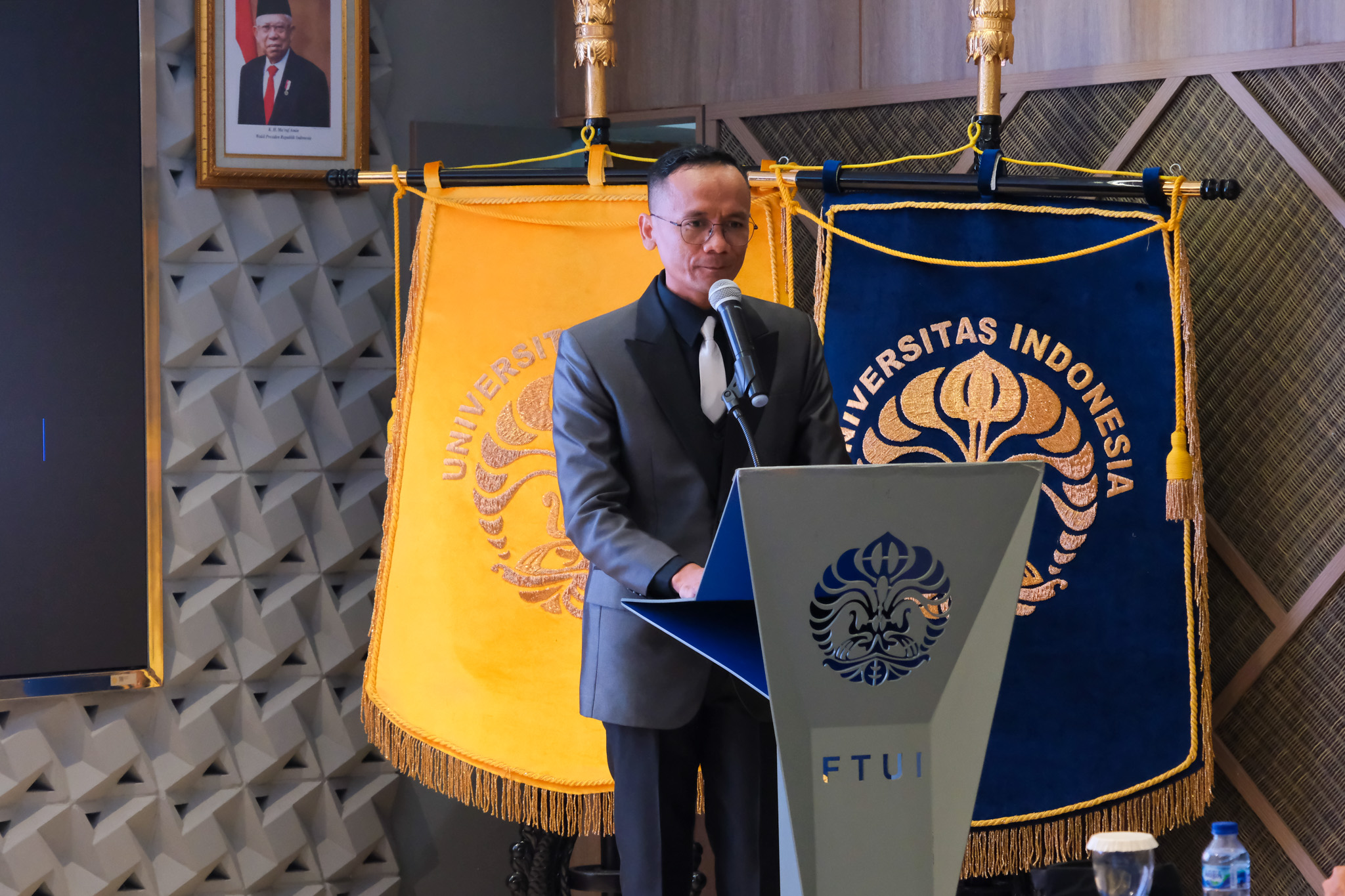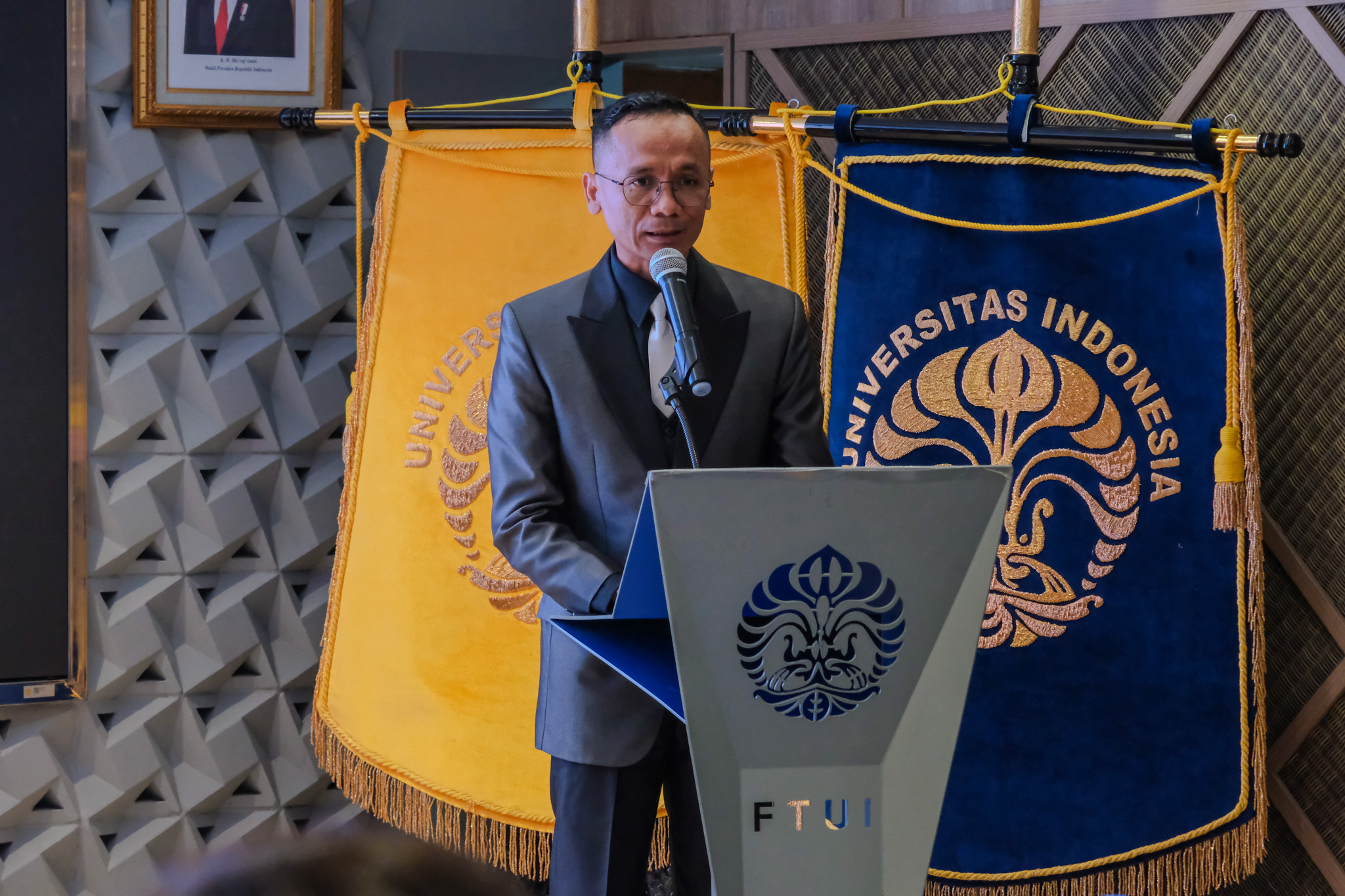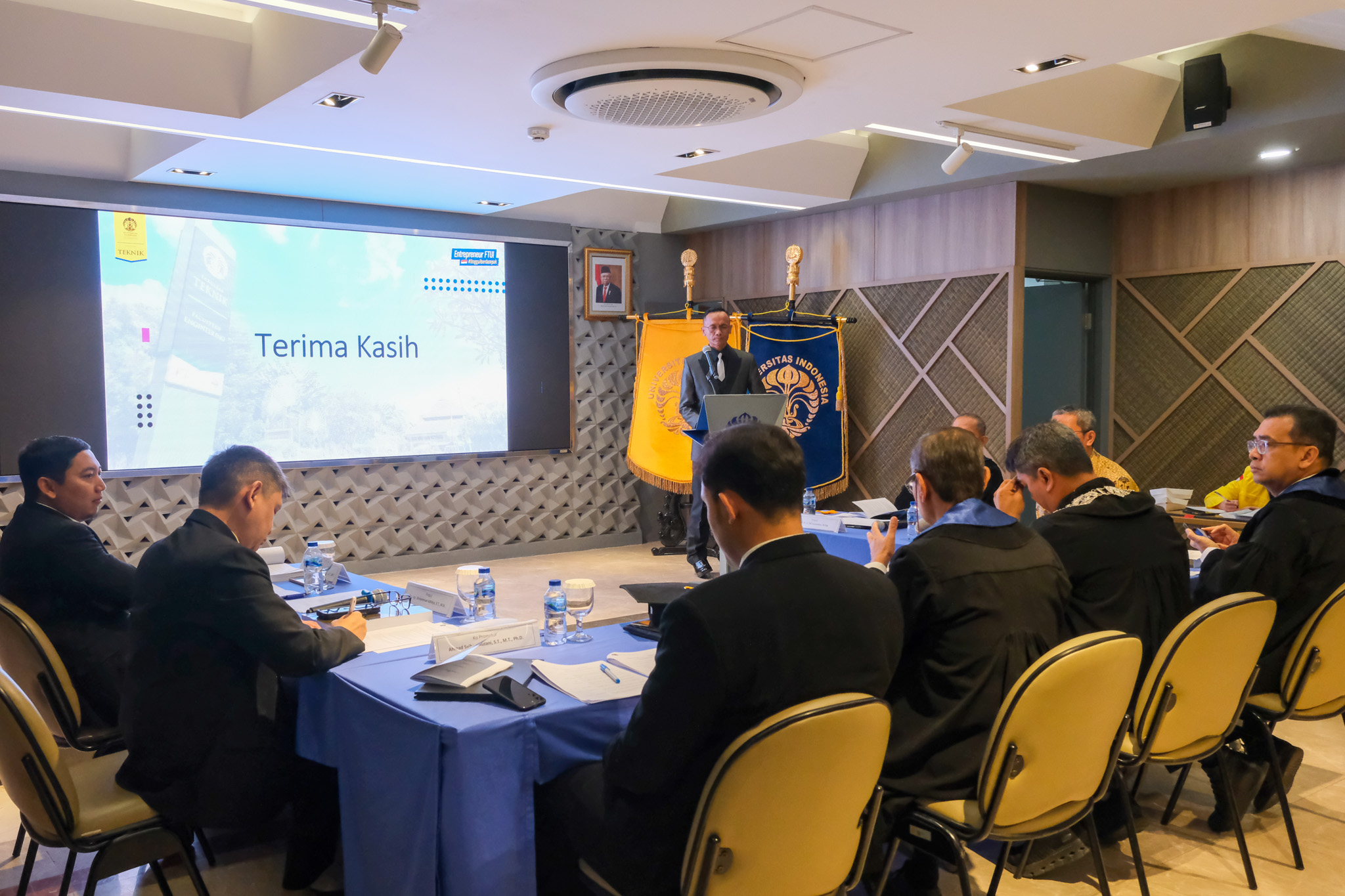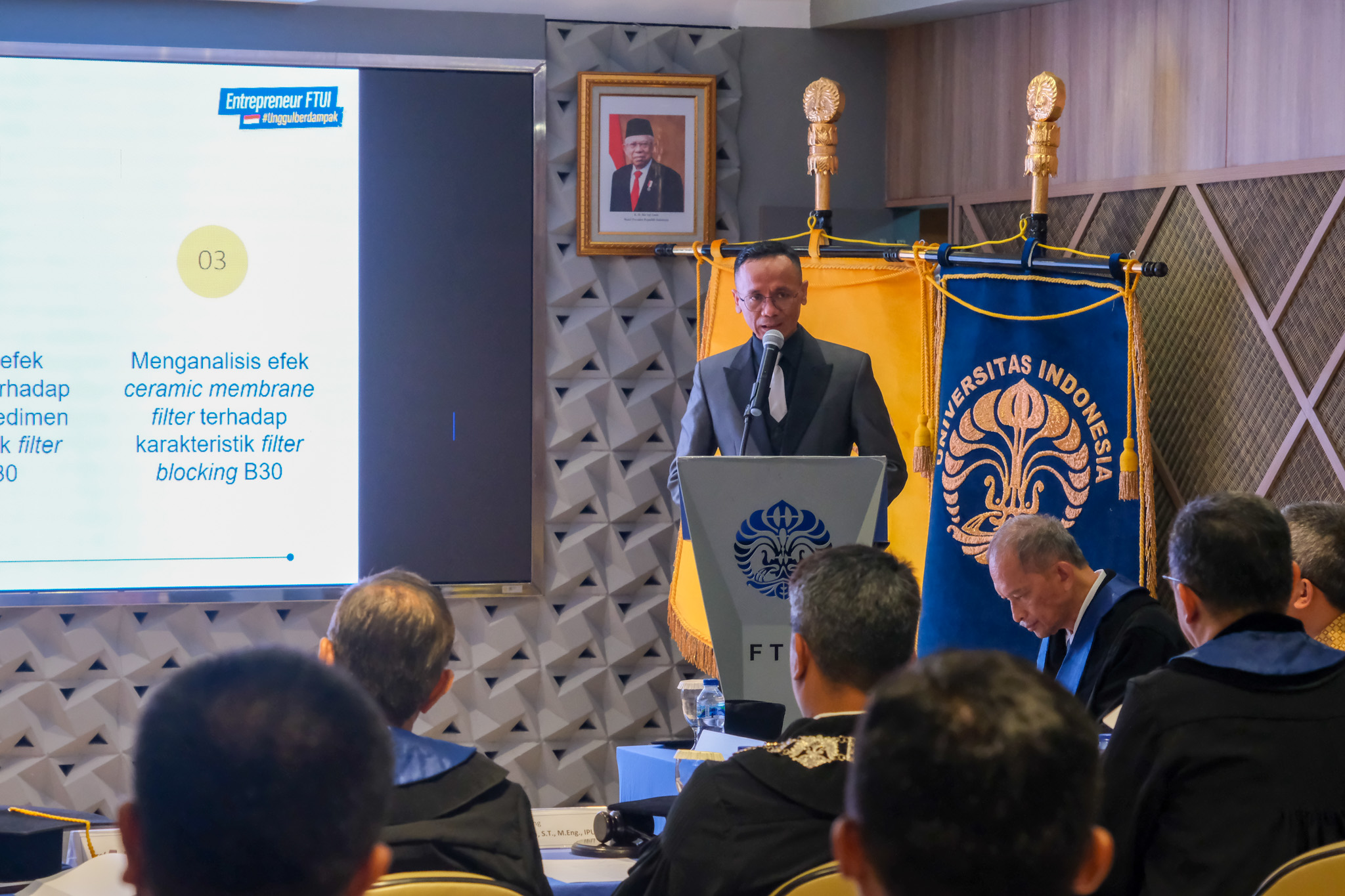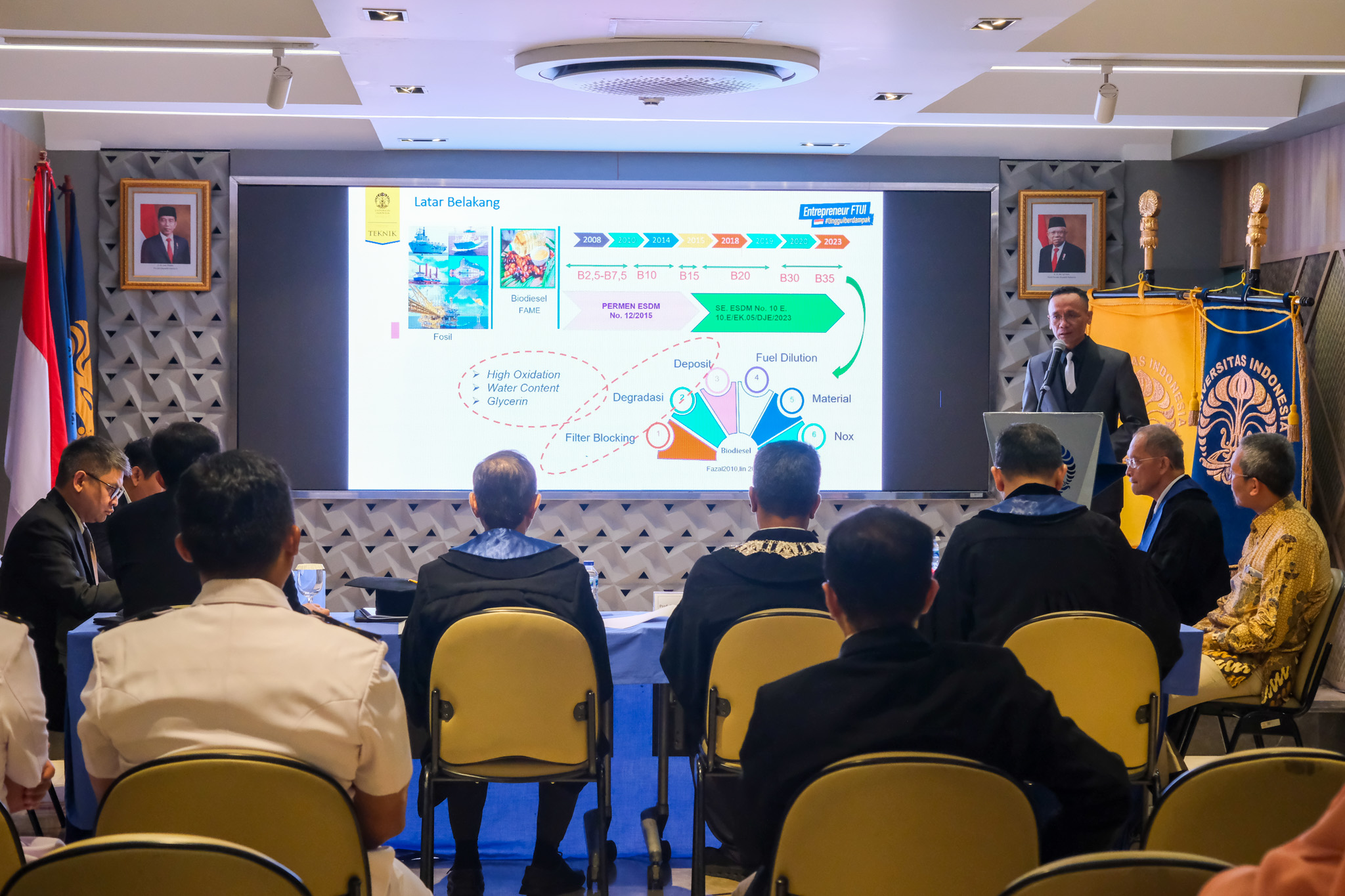Maintaining the stability of fuel storage in tanks is the biggest challenge in the implementation of biodiesel in marine engines. This challenge prompted Jajang Amir Hidayat, a doctoral student in the Mechanical Engineering Department at FTUI, to research the application of a B30 fuel filtration system using a ceramic membrane filter. This research is presented in his dissertation titled “Development of Cross Flow System Filtration of Palm Oil B30 Biodiesel Fuel in Marine Conditions Using Ceramic Membrane Filter.”
The dissertation was presented at the public defence of Jajang Amir Hidayat’s doctoral promotion on Thursday (11/01) in the Smart Meeting Room, FTUI Dean’s Office Building. In his dissertation, Jajang Amir Hidayat revealed, “Improper storage can reduce the quality of biodiesel, and due to its vulnerability to oxidation, biodiesel is more prone to degradation during long-term storage. This results in fuel filters getting easily clogged and tank corrosion. On the other hand, if there is a blockage in the filter, it can lead to reduced fuel input to the engine, causing the engine to stall.”
To address the greater impact of biodiesel blends on fuel filters, Jajang conducted research to address or reduce contaminants during the transesterification process/initial process of pure biodiesel (B100). The research used a ceramic membrane filter with a cross-flow filtration method, tested directly in the ship’s tank for 30 days.
“With this research, it is shown that there is an increase in viscosity and density along with an increase in the ratio but still meets the ASTM D7467 standard. In addition, the sediment formation test results after a storage period of 30 days show that B30 has a density comparable to the initial condition, with a difference of less than 0.1%, but its viscosity shows an increase of 1.2%. The amount of sediment formed remains consistent until the 19th day but increases logarithmically from the 20th day to the 30th day,” explained Jajang.
The use of a ceramic membrane filter affects cleanliness, FTB, water content, and microbiological growth. The use of this filter can reduce cleanliness values, especially for the 0.1-micron pore size, from ISO 21/19/15 to 15/14/13 for 4-micron, 6-micron, and 14-micron sizes. Additionally, the FTB value decreases by around 86% after using the filter. Thus, the use of a ceramic membrane filter, in addition to purifying biodiesel from glycerin, can also improve the quality of the B30 biodiesel fuel mixture by reducing FTB values, cleanliness, water content, and microbiological growth.
“The development of the cross-flow system using a ceramic membrane filter is expected to improve the quality of biodiesel, thereby aiding in the maintenance of fuel storage tanks and ship engines. In the future, it is hoped that it can be used on ships in Indonesia and abroad,” said FTUI Dean, Prof. Dr. Ir. Heri Hermansyah, ST., M.Eng., IPU, regarding this research.
Jajang Amir Hidayat earned his doctoral degree with a GPA of 4 and the predicate Cumlaude in this doctoral promotion defence. He is the 104th doctoral graduate from the Department of Mechanical Engineering and the 533rd from FTUI. The doctoral promotion defence for Jajang Amir Hidayat was led by the Chair of the Session, Prof. Dr. Heri Hermansyah, S.T., M.Eng., IPU, with Prof. Ir. Yulianto Sulistyo Nugroho, M.Sc., Ph.D., as the main supervisor and Ahmad Syihan Auzani, S.T., M.T., Ph.D., as co-supervisor. The Examination Committee included Prof. Dr. Ir. R. Danardono A.S., DEA., PE., Dr. Hari Setiapraja, S.T., M.Eng., Prof. Dr. Ir. Adi Surjosatyo, M.Eng., Dr.-Ing. Mohammad Adhitya, S.T., M.Sc., Dr. Eng. Muhammad Arif Budiyanto, S.T., M.T.
***
Public Communication Office
Faculty of Engineering, University of Indonesia

